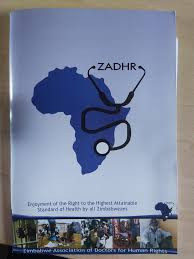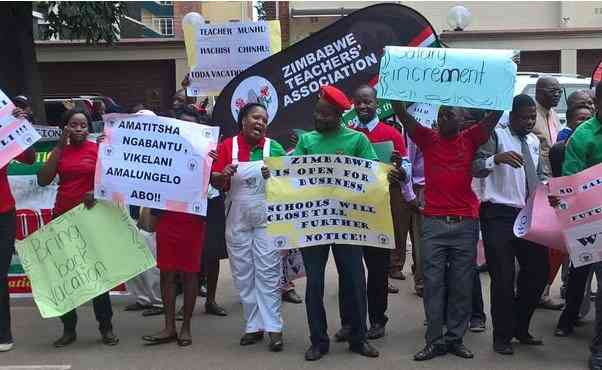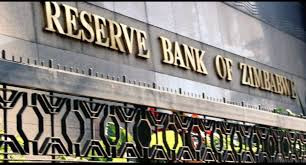THE Central Intelligence Organisation (CIO) has secret revenue streams which it uses to fund “dirty” activities such as the controversial Forever Associates Zimbabwe (FAZ) which tilted the scale in Zanu PF’s favour in the 2023 general elections, a new report has lifted the lid on the operations of the secret service.
The latest revelations by The Sentry report will justify calls for Parliament to regulate the secret service’s funding in annual budgets.
Election observer missions flagged FAZ for aiding President Emmerson Mnangagwa’s election through intimidation, torture and abduction of opposition supporters, among other electoral malpractices.
A latest The Sentry report said its investigations uncovered CIO private ventures which are a source of off-budget financing.
The investigative and policy organisation revealed that the CIO controls 12 companies namely Terrestrial Holdings, Terrestrial Mining, Whitelime Mining, Chimanimani Logistics, Chapel Mining, Sino Zim Development and Sino Zim Cotton Holdings, Sino Zim Diamonds, Terrestrial Safaris, Rudgold Investments and Todware Investments.
The Sentry alleged that the CIO likely controls Terrestrial Holdings by following clues about a past network of CIO companies, which made it possible to draw up a list of company directors and identify an address, both linked to the spy agency.
“Publicly available information suggests that the CIO controls Terrestrial Holdings, a business conglomerate of companies involved in hemp, solar energy, coal mining, tourism and golf,” the report alleged.
“The CIO’s remit includes both domestic and international intelligence matters and its agents have been accused of partisan and violent behaviour in the past.
“For instance, in the 2023 election, one of the agency’s leaders helped to establish a ruling party affiliate criticised for intimidating rural voters.
“While the bulk of CIO’s funds come from the official budget, the agency — which has a dedicated investment branch — has been known to engage in private business ventures as a source of off-budget financing.”
The report alleged that CIO past business ventures involved mushroom farming, exporting baby elephants and diamond mining.
“Most recently, CIO-linked companies Terrestrial Mining and Whitelime Mining have been awarded coal mining concessions covering 50 000 hectares near Lake Kariba in western Zimbabwe, an area close to large proposed and existing coal-fired power plants," the report read.
“The existence of an autonomous CIO business network matters because the agency — which has reportedly engaged in election-related intimidation — requires civilian control, including full financial oversight and transparency, to prevent abuse.”
Security forces with their own sources of revenue can more easily go rogue, The Sentry said drawing parallels to Sudan’s Rapid Support Forces. The paramilitary group had off-budget sources of income from gold and a business conglomerate, possibly contributing to its current military campaign against the official Sudanese armed force, The Sentry said.
The report implored government to dissolve the CIO’s businesses and wind up its investment branch.
The Sentry said there should be appropriate legislation to ensure that CIO funding sources are regulated by Parliament in the annual budgeting process.
The Sentry report also urged government to introduce an online, public corporate registry of directors and beneficiary owners to replace Zimbabwe’s difficult-to-access paper-based system in which up-to-date information is often missing.
“At present, the records for Terrestrial Holdings and Chimanimani Logistics are missing from the company registry, while the records for Whitelime Mining appear to be out of date.”
The report added: “Banks and firms doing business with Terrestrial Holdings and related companies should conduct enhanced due diligence — consistent with the United Nations Guiding Principles on Business and Human Rights — into the ownership structure of the entity to identify and mitigate risks associated with direct or indirect support for a State security agency whose members are accused of human rights abuses and undermining democracy.”
Zanu PF director of Information Farai Marapira said there was nothing untoward about CIO and FAZ funding sources.
Marapira said NGO’s were also receiving secret money.
“An example is the majority of NGOs present in Zimbabwe serve a regime change agenda and by extension supported the opposition in the last election. So this is not unique to Zanu PF,” Marapira said.
“All political parties in Zimbabwe have affiliates, the only difference is as Zanu PF we are transparent and clear about ours.”
When contacted for comment Information minister Jenfan Muswere requested questions in writing. Muswere, however, did not respond to questions sent to him.
FAZ leader Kudakwashe Munsaka was not answering his phone when we tried to reach him for comment. He has in the past dismissed claims that his organisation is funded by the CIO.
Zanu PF spent at least US$4 million — a large sum of money in Zimbabwean politics — importing 160 or more Toyota Hilux pick-up trucks for its candidates.
Reports indicate that the money to purchase the vehicles came from FAZ.





